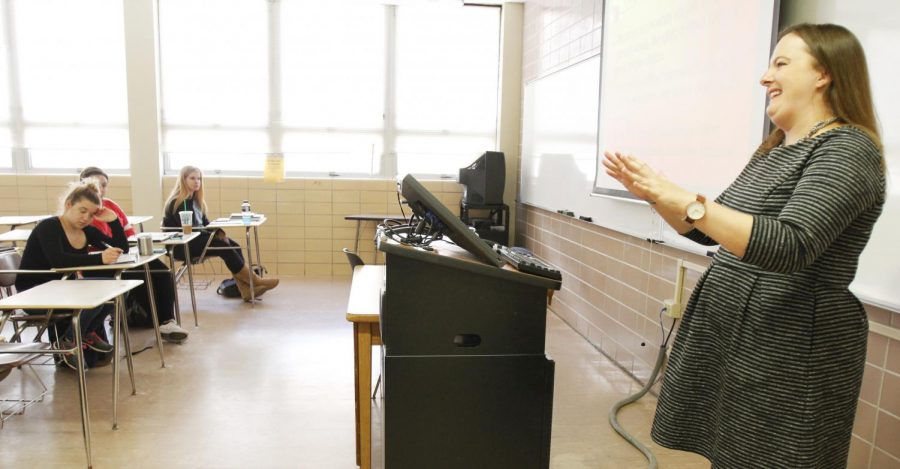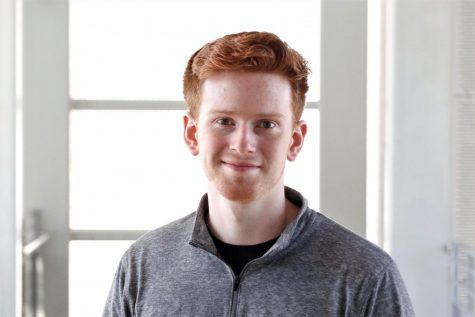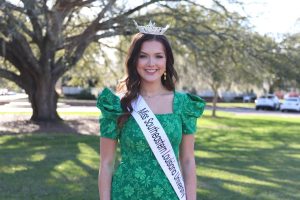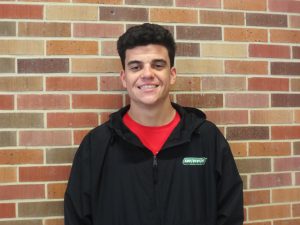Studying behavior on all levels in psychology
File Photo
The department of psychology offers several concentrations for students to analyze the functions of the mind and human behavior. The university also offers a master’s program where students can earn a concentration in industrial/organizational psychology.
October 2, 2018
Students pursuing a degree in psychology can expect to analyze human behavior on a deep level.
The university offers two concentrations of study for psychology majors as well as a graduate program. Professors teach the fundamentals early on in the curriculum so that students understand the field better and seek out a certain issue to study.
Kaitlyn Jones, a junior psychology major, explained that she chose to become a psychology major after taking an AP psychology course in high school.
“It was really the only subject that I was interested in, the only thing that caught my eye and the only thing I actually paid attention to and studied outside of class,” said Jones. “I love thinking about people, and I love talking to people and understanding thought processes, communication and helping people.”
Since psychology is one of the eight departments in the College of Arts, Humanities and Social Sciences, it may be hard for some to distinguish the field from others. Jennifer Hollander, a lecturer of psychology, identified the differences between a few similar sounding fields.
“Psychology is the study of the mind and mental processes,” said Hollander. “Sociology is the study of social problems, and physiology includes the biology of the brain.”
Psychology majors have several special topics they can research during their time at the university.
Susan Coats, department head of psychology, listed different types of analyses used in different research topics.
“Some psychologists study how people differ, in terms of personality for example, others on our similarities, how memory works, how hormones affect behavior,” said Coats. “And then, there is a large segment of psychology that revolves around the diagnosis and treatment of psychological disorders.”
The more exposure to this array of topics, the more Jones feels connected to her area of study.
“The more psych classes that I’m in, the high-level classes, the more I realize that this is my thing,” said Jones. “This is what I’m interested in. I could do this for the rest of my life.”
After an undergraduate degree in psychology, students can seek a master’s of arts by taking the 38-hour graduate program at the university.
Hollander said that students in the master’s program often study further in the field of counseling. Coats listed additional job titles that students seek such as psychologists, behavior analysts, occupational therapists, social workers and research associates.
Jones explained her plans after she earns her bachelor’s degree in psychology.
“I definitely want to go to grad school, and I want to learn more about abnormal psych and maybe venture into helping people with eating disorders because that’s what I really, really like about psychology, the abnormal part of it,” said Jones.
Students taking a couple courses or getting a minor in psychology can also find universal benefits. Coats explained the applicability of psychology.
“I would be hard pressed to consider one area of life for which an understanding of human emotion, motivation and behavior is not useful,” said Coats. “Parenting, personal relationships, overcoming personal obstacles, basic decision making may all be enhanced by knowledge of psychology. Being that psychology is a science, students of psychology learn how to think critically, analyze data, and to find solutions to problems, all of which is also widely applicable.”
In addition to degrees, there are organizations on campus that specialize in human behavior. Jones stated her desire to learn psychology outside of the classroom through organizations she wishes to join.
“I really want to join NAMI, the National Alliance for Mental Illness,” said Jones. “When my GPA gets high enough, I want to join Psi Chi and meet other people in my field.”










